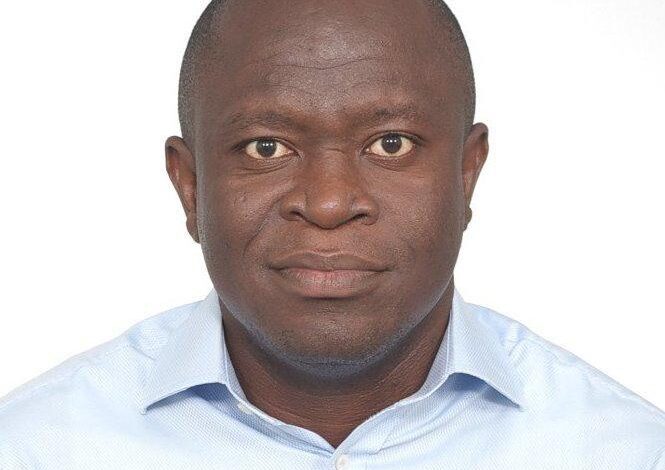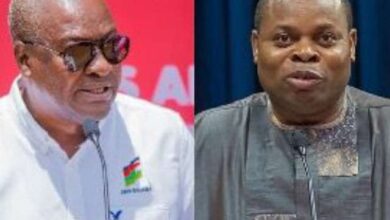How Executive Overreach in Ghana Undermines Economic Progress

When Checks and Balances Become Imbalanced
Democracy thrives on the separation of powers, with the executive, legislature, and judiciary operating as independent yet interdependent institutions, each serving as a check on the others. Ghana’s 1992 Constitution formally recognizes this structure. However, in practice, the executive arm wields disproportionate power, rendering the legislature and judiciary largely subordinate or passive.
This constitutional and institutional imbalance has fostered a dysfunctional democracy, one that has far-reaching implications beyond governance, especially for Ghana’s economic performance. This article critically examines how Ghana’s executive dominance cripples transparency, distorts public spending, discourages investment, and erodes the foundation for inclusive development.
Constitutional Power Tilt: The Executive Above All
Ghana’s 1992 Constitution grants the president sweeping powers. The president appoints a majority of ministers from Parliament, undermining legislative independence. The executive controls appointments to key judicial and regulatory bodies, often blurring the line between accountability and loyalty. State agencies, SOEs, and public institutions function under presidential influence, limiting technocratic autonomy. As a result, the legislature is weakened, often acting as a rubber stamp rather than a counterbalance, while the Judiciary’s independence is questioned due to appointment processes and political affiliations. This constitutional architecture has created an imperial presidency, undermining democratic ideals and economic oversight.
Impact on Fiscal Discipline and Public Financial Management
Without a strong and independent legislature, budget scrutiny and expenditure oversight are compromised. Parliament is often unable or unwilling to:
- Rigorously interrogate national budgets.
- Enforce fiscal rules or sanction overspending.
- Prevent unbudgeted political expenditures, especially in election years.
The result is a pattern of reckless public spending, unsustainable borrowing, and mounting debt, conditions that have led Ghana repeatedly to the IMF’s doorstep. In 2022–2023, Ghana defaulted on its debt and was forced into domestic debt restructuring. The lack of parliamentary restraint and executive accountability played a key role in this fiscal breakdown.
Judicial Complicity and Erosion of Investor Confidence
An independent judiciary is essential for upholding the rule of law and protecting property rights, both critical for attracting long-term investment. However, when the judiciary is perceived to be politically compromised, three things happen:
- Foreign and local investors lose trust in contract enforcement and dispute resolution mechanisms.
- Corruption cases involving powerful individuals go unpunished, eroding public faith in justice.
- Regulatory bodies lack teeth, because their mandates can be undermined by political influence.
For example, regulatory uncertainty in Ghana’s mining and energy sectors, often due to executive interference, discourages capital inflows and raises the cost of doing business.
State Capture and Patronage Politics
The overconcentration of power in the executive facilitates state capture, where economic opportunities are monopolized by a political elite. This is evident in:
- Sole-sourcing of government contracts to party-affiliated businesses.
- Politicized distribution of public sector jobs and licenses.
- Weak enforcement of procurement laws.
This creates a rent-seeking culture, where political connections, not competence or competition, determine who gets what. Such a system undermines innovation, stifles entrepreneurship, and wastes public resources, all at the expense of economic growth.
Weak Parliament, Poor Policy Oversight
A legislature dominated by the ruling party often fails to hold ministers and agencies accountable. For instance:
- Auditor-General reports uncover billions in financial irregularities, yet few consequences follow.
- Ministerial vetting is rarely rigorous, with even clearly underqualified nominees easily approved.
- Parliamentary committees often lack the independence or capacity to provide meaningful oversight.
Without a vibrant, assertive Parliament, economic policies are poorly scrutinized, and ineffective programmes persist, costing the country both money and opportunity.
Decentralization Undermined by Centralized Power
Ghana’s overcentralized executive also hampers decentralization, a critical component of inclusive economic development. Local governments remain financially dependent on central government transfers, with District Chief Executives appointed by the President. This structure disempowers local innovation, delays service delivery, and undermines local accountability. Economically, this leads to regional disparities, underdevelopment of rural areas, and inefficient allocation of resources.
What Is at Stake: A Democratic Economy or a Politicized One?
An imbalanced democracy where the executive dominates every institution inevitably leads to a politicized economy, where:
- Economic planning is dictated by political expediency, not strategic vision.
- State institutions lose credibility and effectiveness.
- Citizens lose faith in government, leading to apathy or unrest.
In contrast, balanced governance creates the institutional stability and predictability that fosters economic growth.
Rebalancing Democracy for Economic Transformation
To restore democratic functionality and unlock economic potential, Ghana must consider the following:
- Constitutional Reform
- End the requirement for ministers to be appointed from Parliament.
- Decouple the presidency from appointments to key independent bodies.
- Strengthen Legislative Autonomy.
- Provide Parliament with independent budgetary and legal capacity.
- Guarantee Judicial Independence
- Reform judicial appointment processes to insulate from partisan influence.
- Empower judicial bodies to prosecute economic crimes without fear or favour.
- Empower Local Governance.
- Elect MMDCEs to strengthen grassroots accountability and development.
- Allocate real fiscal autonomy to local governments.
Economic Prosperity Demands Democratic Balance
Ghana’s economy cannot flourish under a democracy in name only. An overpowered executive undermines the very checks and balances that guard against mismanagement, corruption, and inefficiency. For Ghana to achieve true middle-income status and sustainable development, the institutions of democracy must be rebalanced, and constitutional power realigned. In short, the beauty of democracy lies in its ability to protect the public interest through mutual accountability, a beauty that fades when one arm holds all the power.
Written By: Michael Insaidoo (Ph.D)
Department of Economics and Actuarial Science
University of Professional Studies, Accra.





